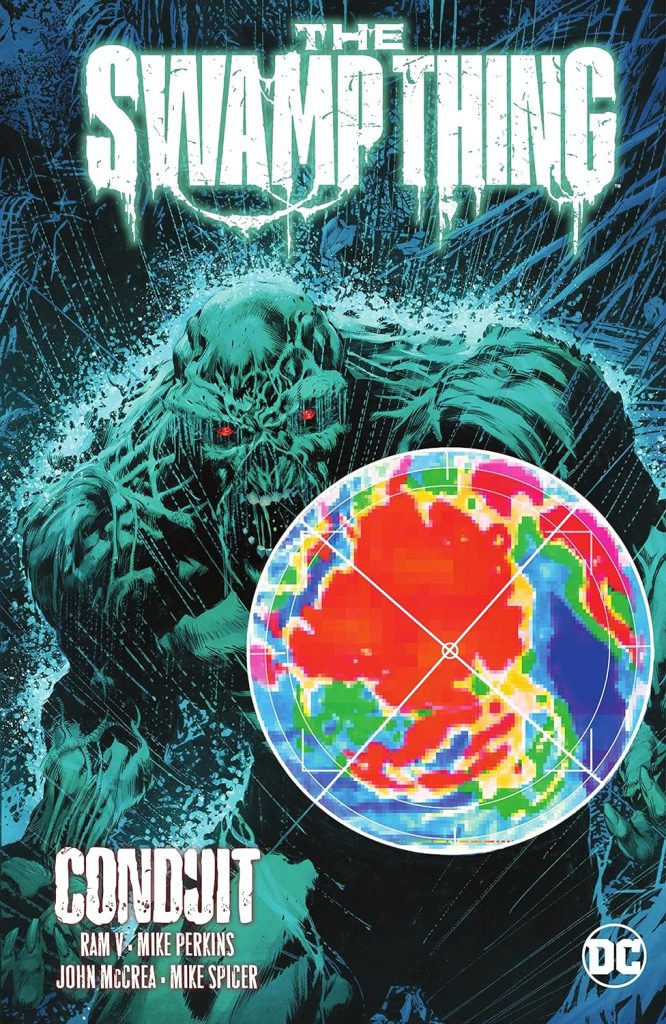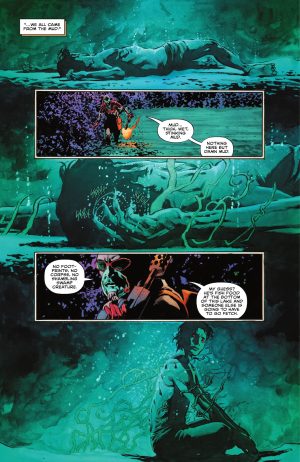Review by Karl Verhoven
Rather than immediately follow up on the intriguing thought of the Suicide Squad on Swamp Thing’s trail that ended Becoming, Ram V first stops off in London to have his new Swamp Thing meeting John Constantine for the first ordinary story on his watch. The idea of an unexploded World War II bomb spreading the concept of fascism in the present day is something that might just have worked in the 1980s, but is now too distant and facile for what we’ve been given in the series so far. Constantine’s speech patterns aren’t convincing either, leaving John McCrea’s art the most welcome aspect. The impressionistic looseness is 180 degrees away from the precision of Mike Perkins over the remaining content, but captures an essence of chaos.
The spat with the Suicide Squad occupies three chapters set in India, enabling V to include flashbacks to events alluded to in Becoming, but never actually spelled out, most prominently how it is Levi Kamei now communes with primal forces. So far he’s been a figure of sympathy, trying to do right as he comes to terms with what he now is, yet the Levi of the immediate past is smart, but blind, and unable to see that what he considers progress isn’t always desirable. “There has got to be more to life than constantly moving forward”, his mother tells him, but he doesn’t understand.
Although broadly confined to a single location, this is a different form of horror, a tension supplied by the villains of the Suicide Squad considering themselves the worst horrors in an ancient forest, yet actually prey for something worse. A couple of super villain battles, most notably Swamp Thing facing the Parasite, are spectacularly well drawn by Perkins, exploiting primal forces. Once again the distinctive flat colours of Mike Spicer elevate the art.
In Conduit V supplies a title with several interpretations, all referring to Kamei. He’s not only the conduit for the green, but the conduit for his parents’ ambitions and the conduit for Prescott Industries, technically still his employers, to ravage holy ground in India. They see him as the conduit to significant ancient power. That view presents a possibility for at least partial redemption in the final two chapters when all hell breaks loose, spectacularly envisaged by Perkins.
This is more straightforward than Becoming, and as it drops more squarely into action feature territory, Conduit could also be seen as more commercial. However, as good as this is, it’s not the new territory the previous volume was, and by involving Jason Woodrue and his scientific curiosity it very consciously invokes Alan Moore’s radical re-imagining of Swamp Thing back in the 1980s. It’s an interesting choice, and how it plays out awaits in Parliament of Gears.





